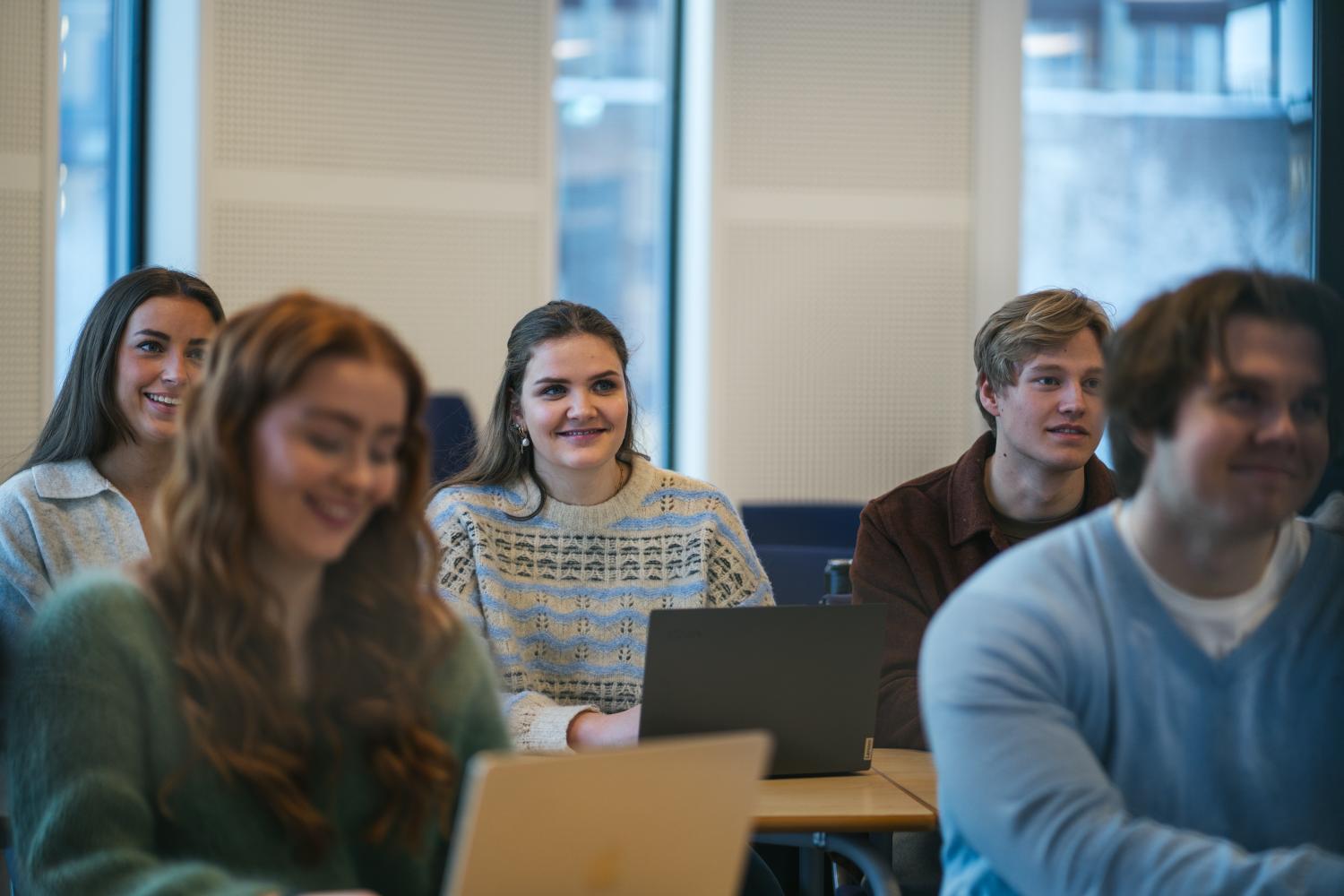The Master in Theoretical Linguistics is the flagship research programme built around the internationally active research group in formal linguistics at UiT. The programme provides a grounding in formal aspects of grammar, in particular syntax and phonology, to prepare students for their own research in language description and analysis. This course of study emphasizes the ways in which languages are formally similar, but also different in highly intricate and specific ways. The programme is especially suited to students interested in working on understudied languages, or engaged in comparative and micro-comparative research.
Bachelor's Degree (180 ECTS), or equivalent qualification, in a language or linguistics, or a degree combining linguistics and literature (minimum 80 ECTS in linguistics/language/literature, of which minimum 60 ECTS must be in linguistics and/or language).
Applicants need an average minimum grade of C or better from the bachelor's degree to be admitted to the master's program.
A special interest in the formal and descriptive properties of natural language is a precondition.
Admission capacity:
10 places
Applicants from Norway or Nordic countries:
Her finner du all informasjon knyttet til søking og opptak.
Applicants from outside the Nordic countries:
- Applicants with education from non-Nordic countries must document English language proficiency.
- You will find more information about international admission here.
- Non-EU students must be prepared to pay tuition fees.
- Nordic applicants: 5060
- EU/EEA + Swiss applicants: 7162
- Non-EU/EEA applicants: 2025
Program description
Are you fascinated by how languages work, how they evolve, and how they are acquired? The Master’s in Theoretical Linguistics is your opportunity to dive deeper into the structure of language and develop advanced skills in analyzing grammar, syntax, phonology, and morphology. Building on your bachelor’s studies, this programme focuses on the formal aspects of linguistics, using comparative studies of different languages to uncover the universal principles of human language. You’ll also explore topics like language variation, historical development, and language acquisition, while tailoring your studies to your interests through elective courses and a master’s thesis.
This two-year programme consists of 80 ECTS of coursework and a 40 ECTS master’s thesis. You’ll take core courses in syntax, phonology, morphology, and semantics, while also choosing electives from a wide range of disciplines. The flexibility of the programme allows you to shape your education to match your academic goals, and you’ll even have the option to study abroad during the second semester.
Located at the Tromsø campus, this full-time programme offers a vibrant academic environment with opportunities to engage in interdisciplinary courses and cutting-edge research. Whether you’re aiming for a career in academia, language technology, education, or beyond, this programme equips you with the theoretical knowledge and analytical skills to succeed.
Join us in Tromsø and take the next step in your linguistic journey. Discover the science behind language and prepare to make your mark in the world of linguistics!
Learning outcomes
After completing the Master's programme in Theoretical Linguistics, the candidate will have specialised knowledge of a linguistic subfield through their Master's Thesis, as well as deeper knowledge of theoretical linguistics and related fields. The candidate will be able to analyze linguistic data, solve problems, and present findings according to academic standards, while also navigating linguistic literature and understanding the development of theories and methods. They will be prepared to work in roles requiring expertise in human language and independent project work, and will be able to address academic, professional, and ethical challenges in linguistics. The candidate will effectively communicate linguistic analyses and conclusions to both specialists and the general public, mastering the language and terminology of the field. Additionally, they will contribute to innovation and new thinking in linguistic theory and apply their skills to advanced projects in new areas.
Job prospectives
The programme qualifies candidates for work in occupations that require specialized insight into language and/or experience with independent project work, for example programming, administration, industry or the media.
It is also an excellent starting-point for further study at the PhD-level.
Degree Name
Master's of Philosophy in LinguisticsAccess to further studies
On successful completion of the degree programme, students may be qualified for admission to a PhD in Linguistics.
Related professions
Study plan
Language of instruction
The language of instruction and all syllabus material, and of exams is English.
Teaching and assessment
Teaching takes the form of lectures and seminars. The Master's in Theoretical Linguistics is a demanding programme that requires the student to work throughout the term. The students are expected to spend 37.5 hours per week on their studies, including preparation for lectures and seminars, work on term papers and other assignments.
As a Master's student, you will be assigned a supervisor who will monitor your progress throughout your studies. The Master's Thesis will be assigned a grade (from A to F); the coursework will be graded on the same scale. For information about examinations, please see the individual course descriptions.
Exchange studies abroad will make you more attractive on the job market. Studies abroad will increase your learning outcomes, improve your language skills, give you unique adventures and international experience. Students taking the Master's in Theoretical Linguistics are encouraged to make use of one of our exchange agreements in the second semester.
For an updated overview of exchange universities, please take a look at UiT's webpage on student exchange.
The application deadlines are:
1 February (autumn semester)
1 September (spring semester)
Destinations for studies abroad
Other studies you may like
Vil du vite hvordan det er å være student ved UiT? Følg @uitstudent på Instagram eller TikTok, hvor studenter deler fra livet på universitetet. Her får du praktiske tips om studier og studentliv, nyttig informasjon om campus og muligheten til å stille spørsmål om alt du lurer på.
For mer informasjon om studietilbud, forskning og muligheter direkte fra UiT, kan du følge @uitnorgesarktiske på Instagram eller TikTok. Her finner du offisielle oppdateringer og innsikt i hva universitetet har å tilby.





